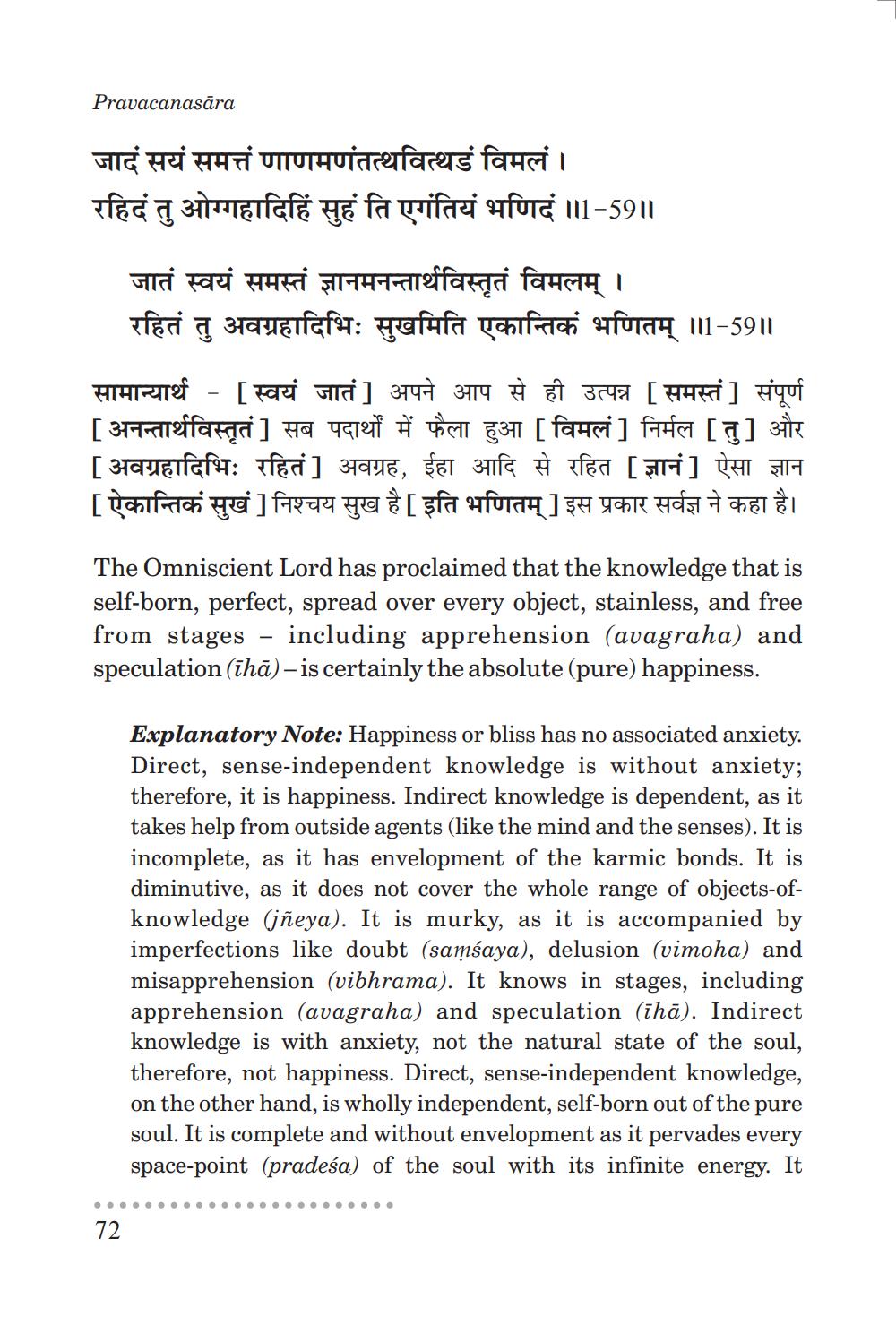________________
Pravacanasāra
जादं सयं समत्तं णाणमणंतत्थवित्थडं विमलं । रहिदं तु ओग्गहादिहिं सुहं ति एगतियं भणिदं 1-59॥
जातं स्वयं समस्तं ज्ञानमनन्तार्थविस्तृतं विमलम् । रहितं तु अवग्रहादिभिः सुखमिति एकान्तिकं भणितम् ॥1-59॥
सामान्यार्थ - [स्वयं जातं] अपने आप से ही उत्पन्न [ समस्तं] संपूर्ण [अनन्तार्थविस्तृतं] सब पदार्थों में फैला हुआ [विमलं ] निर्मल [तु] और [अवग्रहादिभिः रहितं] अवग्रह, ईहा आदि से रहित [ज्ञानं] ऐसा ज्ञान [ऐकान्तिकं सुखं] निश्चय सुख है [ इति भणितम् ] इस प्रकार सर्वज्ञ ने कहा है।
The Omniscient Lord has proclaimed that the knowledge that is self-born, perfect, spread over every object, stainless, and free from stages - including apprehension (avagraha) and speculation (īhā) – is certainly the absolute (pure) happiness.
Explanatory Note: Happiness or bliss has no associated anxiety. Direct, sense-independent knowledge is without anxiety; therefore, it is happiness. Indirect knowledge is dependent, as it takes help from outside agents (like the mind and the senses). It is incomplete, as it has envelopment of the karmic bonds. It is diminutive, as it does not cover the whole range of objects-ofknowledge (jneya). It is murky, as it is accompanied by imperfections like doubt (samsaya), delusion (vimoha) and
misapprehension (vibhrama). It knows in stages, including apprehension (avagraha) and speculation (īhā). Indirect knowledge is with anxiety, not the natural state of the soul, therefore, not happiness. Direct, sense-independent knowledge, on the other hand, is wholly independent, self-born out of the pure soul. It is complete and without envelopment as it pervades every space-point (pradeśa) of the soul with its infinite energy. It
72




